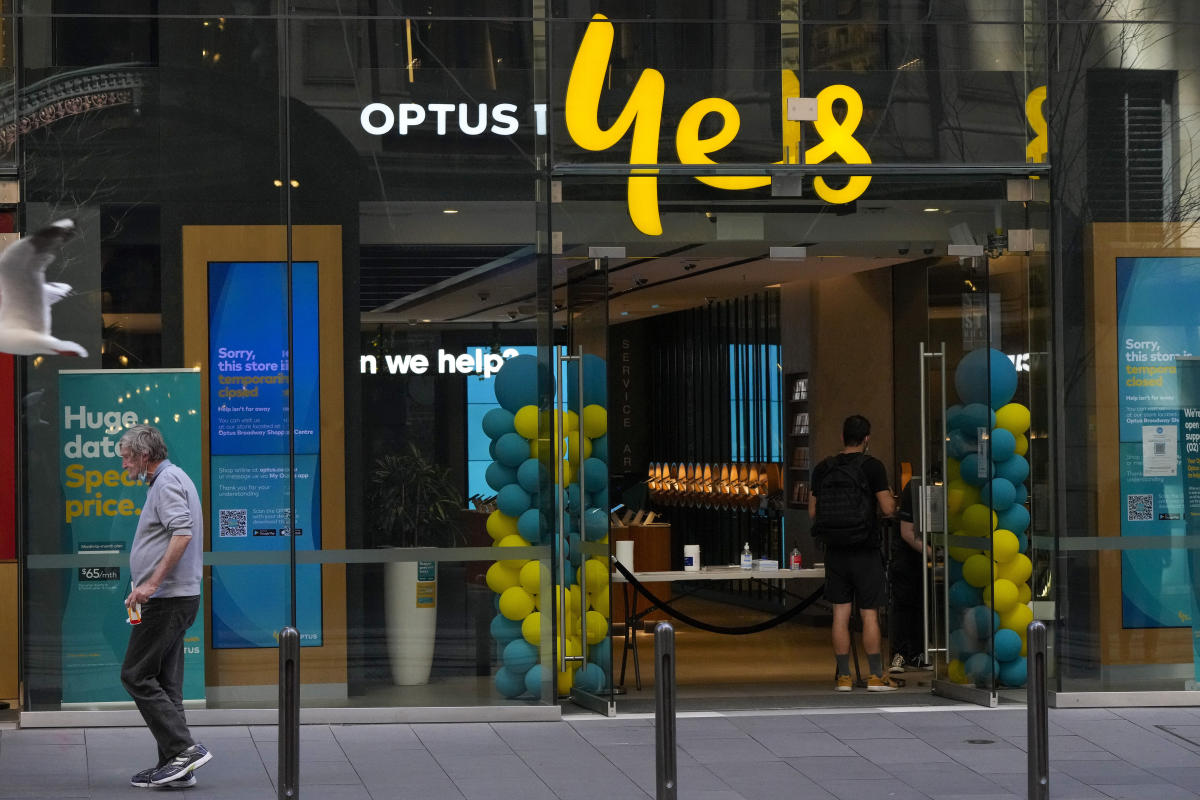
CANBERRA, Australia (AP) — Australian police were investigating a report that a purported hacker had already released the stolen personal data of 10,000 Optus customers and was demanding a $1 million ransom in cryptocurrency, the telecommunications company’s chief executive said on Tuesday.
The Australian government has blamed lax cybersecurity at the nation’s second-largest wireless carrier for the unprecedented breach last week of the personal data of 9.8 million current and former Optus customers.
Jeremy Kirk, a Sydney-based cybersecurity writer, said the purported hacker had released 10,000 Optus customer records on the dark web and threatened to release another 10,000 every day for the next four days unless Optus paid the ransom.
Asked if the hacker had threatened to sell the remaining data if Optus did not pay the $1 million within a week, the company’s chief executive Kelly Bayer Rosmarin told Australian Broadcasting Corp.: “We have seen there is a post like that on the dark web.”
Australian Federal Police said Monday their investigators were working with overseas agencies to determine who was behind the attack and to help shield the public from identity fraud. Police declined further comment Tuesday as the investigations were ongoing, an AFP statement said.
“They’re looking into every possibility and they’re using the time available to see if they can track down that particular criminal and verify if they a bona fide,” Bayer Rosmarin said.
Kirk said the personal data released on Tuesday appeared to include health care numbers, a form of identification not previously revealed publicly to have been hacked.
Cybersecurity Minister Clare O’Neil on Tuesday urged Optus to give priority to informing customers of what information had been taken.
“I am incredibly concerned this morning about reports that personal information from the Optus data breach, including Medicare numbers, are now being offered for free and for ransom,” O’Neil said in a statement.
“Medicare numbers were never advised to form part of compromised information from the breach,” she added.
Consumers have a right to know exactly what individual personal information has been compromised in Optus’ communications to them, she said.
“Reports today make this a priority,” O’Neil said.
O’Neil on Monday described the hack as an “unprecedented theft of consumer information in Australian history.”
Of the 9.8 million people affected, 2.8 million had “significant amounts of personal data,” including driver’s licenses and passport numbers, breached and are at significant risk of identity theft and fraud, she said.
Kirk said he used an online forum for criminals who trade in stolen data to ask the purported hacker how the Optus information was accessed.
Optus appeared to have left an application programming interface, a piece of software known as an API that allows other systems to communicate and exchange data, open to the public, Kirk said.
“It looks like it was a failure to secure the software system, so anybody on the internet could find it,” Kirk said.
The Australian Financial Review said the theory that Optus “left open an API” had been widely reported.
Bayer Rosmarin rejected such explanations.
“Given we’re not allowed to say much because the police have asked us not to, what I can say — that hopefully will help people understand that it’s not as being portrayed — is that our data was encrypted and we have multiple layers of protection,” Bayer Rosmarin said.
“So it is not the case of having some sort of completely exposed API sitting out there,” she added.
O’Neil didn’t detail how the breach occurred, but described it as a “quite a basic hack.”
Optus had “effectively left the window open for data of this nature to be stolen,” O’Neil said.
Australia’s government is considering tougher cybersecurity rules for telecommunications companies as a result of the hack.
Current cyber-protection law doesn’t allow for Optus to be fined for the breach, though O’Neil noted fines of hundreds of millions of dollars would be possible if it had occurred in other countries.
O’Neil said a potential 2 million Australian dollar ($1.3 million) fine under privacy law was inadequate.




